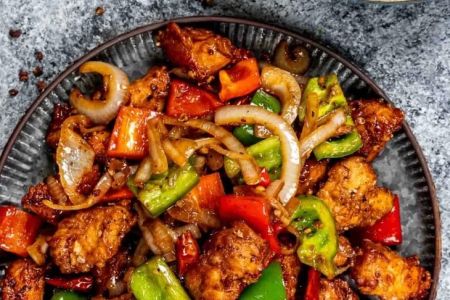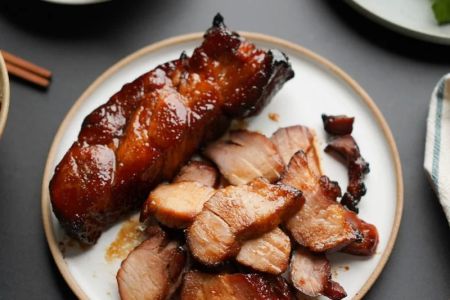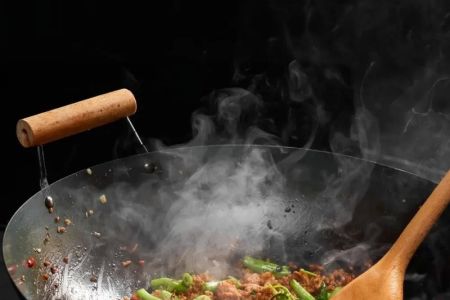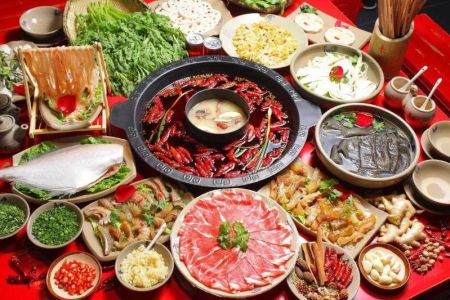Why Are No Chinese Restaurants Open?
As I was driving around town last weekend, I couldn’t help but notice something strange. I had been craving my usual Chinese takeout, but as I passed by my favorite spots, I realized something—none of the Chinese restaurants in my area were open. This got me wondering: why are no Chinese restaurants open? Has there been a sudden change in the way these businesses operate? Are there external factors at play? These were just some of the questions I started asking myself as I dug deeper into this topic.
1. The Impact of the Pandemic on Restaurant Hours
One of the major reasons I’ve noticed that Chinese restaurants, and many other restaurants, aren’t open as frequently as before is due to the impact of the COVID-19 pandemic. When the pandemic first hit, many businesses had to reduce their hours or temporarily shut down. Although many restaurants have returned to normal operations, the pandemic continues to have lingering effects on staffing, inventory, and general operations.
For Chinese restaurants, this has meant that they may not have the same number of staff as they did before the pandemic. With the rise of online food delivery apps and a shift in customer behavior, many Chinese restaurants have adjusted their business models. Some may be focusing more on takeout and delivery than dine-in service, while others may be adjusting their hours to account for labor shortages. This often means that during traditional busy hours, Chinese restaurants may be closed or have reduced services.
2. Supply Chain Issues Affecting Chinese Restaurant Stock
As I continued to ponder the absence of Chinese restaurants during peak dining times, I learned more about how supply chain disruptions are playing a significant role in this situation. A lot of Chinese restaurants rely on imported ingredients, such as certain spices, sauces, and meats, that are difficult to obtain due to delays in shipping and other logistical challenges.
For instance, some of the most iconic dishes in Chinese cuisine, like dumplings and Peking duck, require specific ingredients that are not always available locally. When these ingredients are delayed or in limited supply, restaurants may opt to close temporarily or reduce their menu offerings. Some may not open at all if they cannot provide the quality of food their customers expect. This can explain why many Chinese restaurants are closed at certain times or for extended periods. If you’re a frequent visitor to your local Chinese restaurant and notice it's closed unexpectedly, it might be due to a shortage of essential ingredients.
3. Labor Shortages and Increased Operational Costs
Another factor I discovered contributing to the sporadic openings of Chinese restaurants is the labor shortage. Much like many other sectors, the restaurant industry has been struggling to hire and retain staff. The service industry, particularly Chinese restaurants that often require specialized skills in preparing authentic dishes, has been hit especially hard.
As a result, restaurant owners have been forced to adjust their hours or even close on certain days to manage the strain. Higher wages, added benefits, and competitive incentives are all part of the effort to attract and retain workers. However, many small business owners find it difficult to balance these increased costs with the rising expenses of running a restaurant. For Chinese restaurants, this has meant having to close on certain days or limit their hours to save on operating costs.
4. The Rise of Ghost Kitchens and Delivery-Only Models
The rise of ghost kitchens is another phenomenon I came across that might explain why some Chinese restaurants aren’t open as frequently. Ghost kitchens are delivery-only services that operate out of commercial kitchens rather than traditional dine-in establishments. Many Chinese restaurant owners have shifted to this business model to keep costs down while still catering to the growing demand for takeout and delivery services.
With the increase in food delivery apps like DoorDash, Grubhub, and UberEats, Chinese restaurants are able to keep their kitchens running without worrying about managing a full in-house staff or maintaining a physical storefront. This delivery-only model allows them to operate during hours that cater to customers who prefer food delivered directly to their homes, but it can also lead to the restaurant appearing to be closed if you're looking to dine in.
5. Seasonal Changes in Business Hours
In many cases, Chinese restaurants adjust their hours based on seasonal changes or public holidays. I remember visiting my local Chinese restaurant around the Chinese New Year, and it was closed for a few days while the owners took time off to celebrate with their families. In fact, many Chinese restaurant owners follow traditional Chinese customs, which often require closures during significant cultural and family events.
Additionally, some Chinese restaurants close during the off-season or slower business months to give staff a break and perform maintenance or renovations. These seasonal closures are usually planned well in advance and may explain why some Chinese restaurants seem to close unexpectedly during specific times of the year.
6. The Shift Towards Health-Conscious Menus
Over the past few years, I’ve noticed a significant shift in customer preferences when it comes to dining out. Many people are becoming more health-conscious and are looking for restaurants that offer healthier options. Chinese restaurants, particularly those that specialize in traditional dishes, may be adjusting their menus to reflect these changes in consumer demand.
Some Chinese restaurants have begun to close during certain hours for menu revamps, as they strive to cater to customers looking for lighter, more health-conscious options. This might involve introducing gluten-free, low-sodium, or vegan dishes, which takes time and effort to research and develop. In this context, the closure of certain Chinese restaurants could also be tied to menu shifts or a pause in operations to update recipes and ingredients to meet modern demands.
7. The Increasing Competition in the Restaurant Industry
The restaurant industry has always been competitive, but in recent years, the influx of new dining concepts and the increase in food delivery services have made it even more challenging for traditional Chinese restaurants to stand out. Many of the larger chains or newer, more trendy establishments are better equipped to manage fluctuating demand and operational costs. This competition has led to the closure of smaller, locally owned Chinese restaurants or has forced them to reduce their hours in order to stay afloat.
It’s important to remember that the reasons for these closures or reduced hours are not only economic but also a reflection of changing tastes, business models, and consumer habits. As I learned more about the state of Chinese restaurants, I realized that the landscape has been shifting, and owners must adapt to survive. Despite these challenges, the resilience of many Chinese restaurant owners and the continued popularity of their delicious offerings show that the industry is likely to evolve and recover in due time.
SEO Title: Why Are No Chinese Restaurants Open? Exploring the Reasons Behind the Closures
SEO Keywords: Chinese restaurants closed, Chinese restaurant hours, restaurant closures, food delivery apps, labor shortages in restaurants, ghost kitchens, Chinese food closures
SEO Description: Discover the reasons why many Chinese restaurants are closed or have reduced hours. Learn about the impact of supply chain issues, labor shortages, and the shift towards delivery-only models.






![Top Chinese Restaurants for Authentic Cantonese Cuisine in [Your City]](https://img.gochinarose.com/d33/2507/4157910400_450x300.webp)
